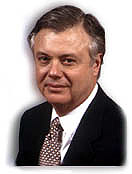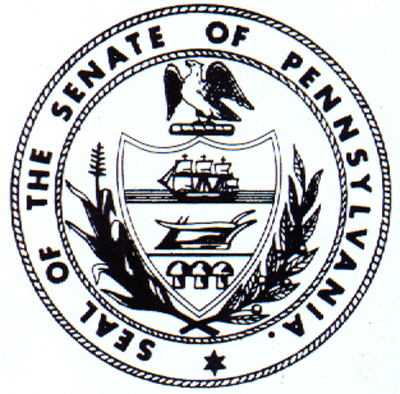|
|
||||||
PUBLIC OFFICIALS TO OPPOSE PGW’s SURCHARGE PHILADELPHIA, April 15, 2004 – Seeking to block a new and unwarranted charge to gas customers in Philadelphia, a group of elected officials has formally requested the right to participate in a case currently before the state Public Utility Commission (PUC). The office of state Senator Vince Fumo (D-Philadelphia) filed the Petition to Intervene with the PUC in Harrisburg today on behalf of Fumo, City Council President Anna Verna, and City Council members David Cohen, Frank DiCicco, Jim Kenney, Joan Krajewski, Michael Nutter, and Juan Ramos. District Attorney Lynne Abraham also plans to be added to the Petition. They intend to challenge the pending request of the Philadelphia Gas Works (PGW) to impose a monthly surcharge on every customer to make up for unpaid bills. They also intend to ask for greater state regulatory oversight of PGW’s efforts to improve its woeful record of bill collection. "Somebody has to stand up for customers’ rights, and we are going to do everything we can to prevent PGW from slapping this unfair charge onto people’s bills," Fumo said. If approved by the five-member PUC, the petition would give the public officials the right to present testimony to the commission regarding reasons for denying the surcharge request. They will contend that this rate increase would worsen the high cost of gas service, would shield PGW management from the consequences of poor business decisions, and would decrease the company’s incentive to improve its bill collection. "I think it is unconscionable that honest, rate-paying customers are being asked again to pay for those who refuse to pay. We must examine the big picture and find a better way for managing those who refuse to pay or find help for those who need it. But trying to close the PGW budget deficit on the backs of those who pay their bills on time is not the right way to go about it," said Verna. "PGW's failure to do its duty and then making others pay for its mistakes borders on the irresponsible. It also gives license to those who don't pay their bills to continue to do so -- after all, the hapless, but honest, citizens who do pay their bills in a timely fashion will be forced to pay even more of the dead beats' bills," said Abraham. To make up for many customers not paying for service, PGW on March 3 asked the PUC to authorize a surcharge on every customer’s bill. For the average PGW residential customer, it would amount to an additional cost of about $80 per year. PGW, by its own admission, has a non-collection rate of 13 percent, which exceeds that of most regulated utilities in the state. Although the costs of such unpaid bills are often recoverable from other customers to some extent, the effect of the PGW request would be to make the cost of gas service significantly higher for PGW’s good-paying customers. PGW management has been criticized by the PUC as recently as 2003 for its "lackluster collection results." The company has a well documented record of collection inefficiency, including the 1999 failure of its billing system, and its slow implementation of collection reforms. "PGW has testified that ratepayers are already paying 9% of their basic bill to cover the habitual non-payers. Instead of an additional 5% surcharge, it is past time for PGW to become aggressive and crack-down on abusers who are paying their cable and cell phone bills but continue to take advantage of honest PGW customers," said DiCicco. The surcharge, known officially as a "Cash Receipts Reconciliation Clause," would provide no incentive to management to improve debt collection, to increase business efficiencies, or lower operating costs. In fact, under the request, any improvements would not be passed on to customers at a later date. "It is blatantly unfair for PGW to increase its rates because of their own management inefficiency and lax debt collection practices. I owe it to the taxpayers of this city, and in particular the poor who can least afford it, to fight against another rate increase," said Ramos. The officials filed the petition as both individual PGW ratepayers and in their capacities as elected officials from Philadelphia. Fumo has a solid track record of success fighting for consumer rights against utilities. When the Pennsylvania electric deregulation law of 1996 favored utilities over consumers and allowed electric companies to pass on to customers the costs of their bad investments, Fumo challenged PECO’s request to collect $8 billion in so-called stranded costs. In a lengthy fight before the PUC and in the court system, Fumo got the amount that PECO was allowed to charge customers significantly reduced. As a result of the senator’s lawsuit, which was joined by more than 30 other parties including the state Consumer Advocate, every PECO customer got an eight-percent rate reduction. Even now, the transmission and distribution portion of every PECO customers’ electric bill is capped at 1996 rates. Several years ago, Fumo also took on Verizon, which maintained a virtual monopoly over local telephone service. Fumo wanted to open up local telephone service to fair free-market competition. That effort was designed not only to bring cheaper rates, but also to bring more advanced technological telecommunications services to under-served portions of Pennsylvania. After another lengthy battle, the case was settled with Verizon agreeing to make some changes in its business practices to foster competition. # |


